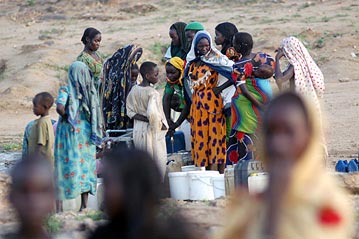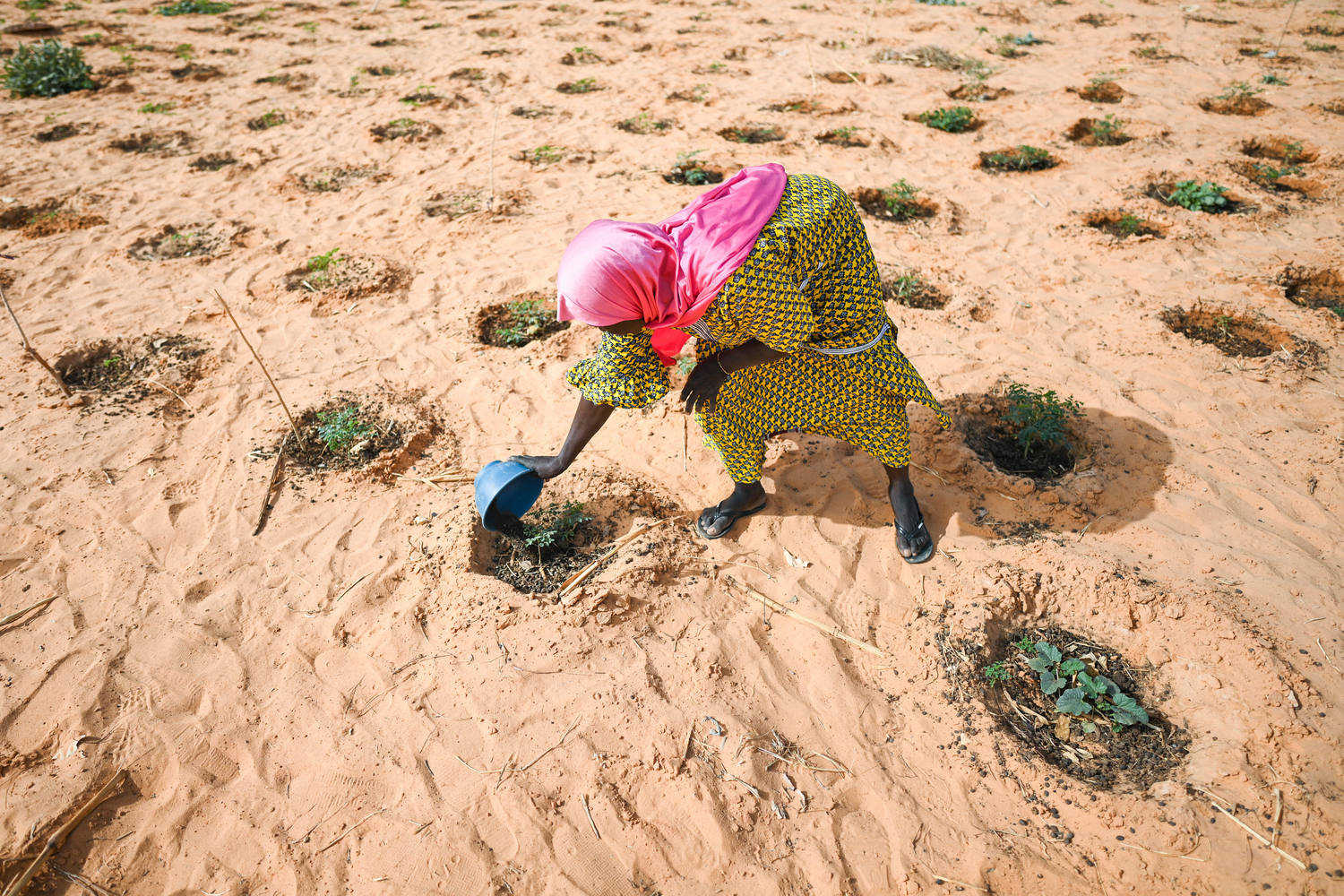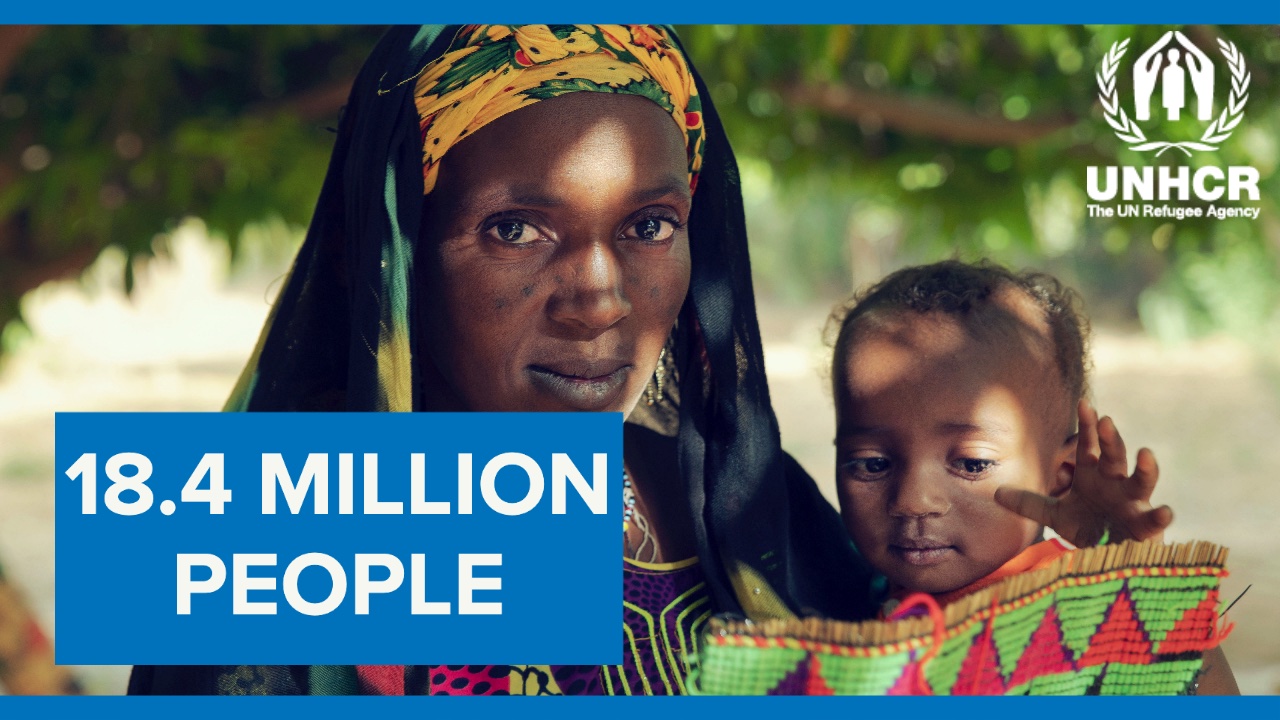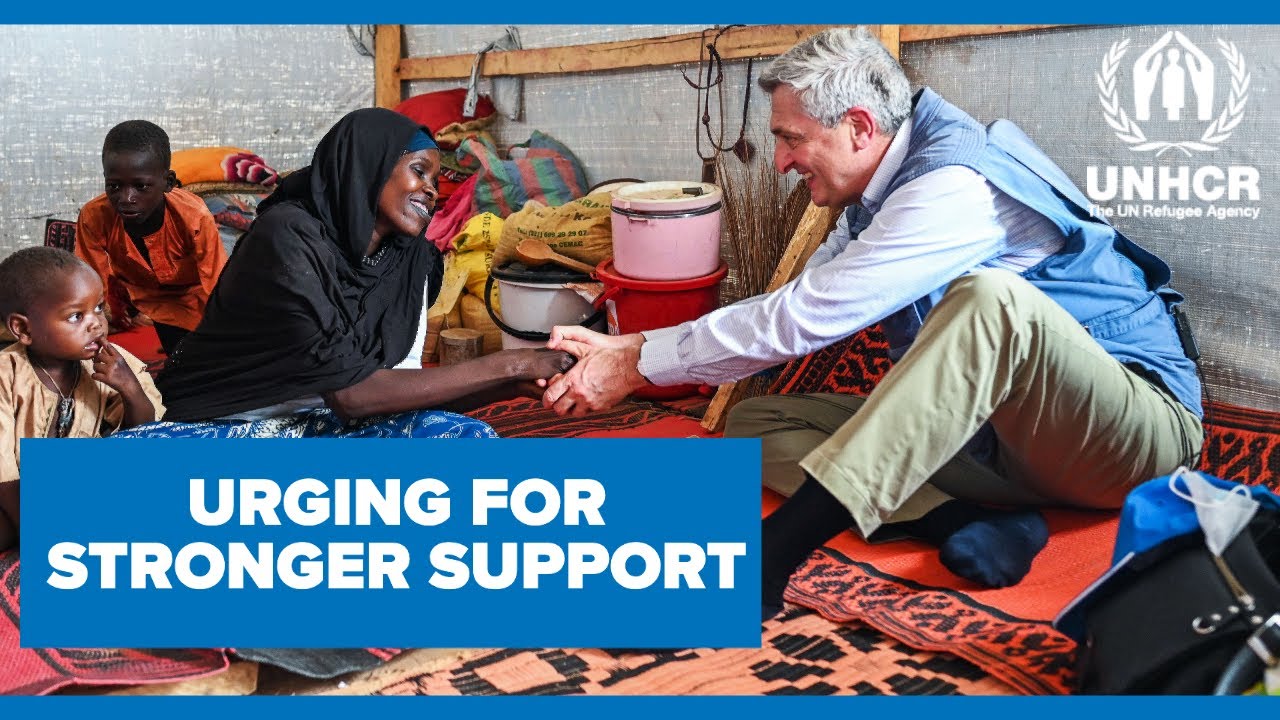Access to water a basic right for refugees, says UNHCR
Access to water a basic right for refugees, says UNHCR

GENEVA, March 22 (UNHCR) - On the occasion of World Water Day, Acting High Commissioner Wendy Chamberlin called on UNHCR staff to "redouble efforts" to improve services to provide clean water to refugees and others of concern to UNHCR.
"Our protection goals are to ensure that refugees' fundamental rights are respected, including their access to water," Chamberlin said in a message to all UNHCR staff. "Fulfilling that basic right is essential for the life, health and dignity of the people of concern to UNHCR, as well as a benchmark for every relief operation."
World Water Day is celebrated internationally on March 22. This year, World Water Day is also the launching point for the International Decade for Action on "Water for Life", declared by the United Nations General Assembly.
UNHCR is marking the day through awareness-raising activities in the field and at its Geneva headquarters. In Nepal's seven Bhutanese refugee camps, for example, UNHCR and its partners are highlighting the value of water and the need to protect and optimize use of this important natural resource, through speeches, drawing and essay competitions, and poster displays. A water clean-up campaign is also being organized to clean water containers and water taps throughout the camps.
Providing adequate water for refugees goes beyond assuring the quantity and quality of water supplies - the way in which water is provided is also crucial. Chamberlin noted that refugees often have to spend hours every day collecting water. School children skip classes to help, and families are more likely to use water from unsafe sources to save time. The shortfalls lead to "terrible social costs", including increased risk of sexual assault when women seek out water at unguarded locations, and higher rates of disease due to consumption of dirty water.
"UNHCR must provide refugees with adequate safe water - and we must do so without putting women and children at risk," stressed Chamberlin in her World Water Day message.
UNHCR is making important progress in several of the most challenging operations around the world. Water is one of the key areas identified by the agency for rehabilitation in south Sudan, a region emerging from decades of conflict and where some 500,000 refugees and an estimated 4 million displaced people could return home beginning this year. UNHCR deployed water and sanitation experts as part of the emergency team sent to south Sudan in late February to begin laying the groundwork for refugee return to a region where infrastructure and basic services are practically non-existent. Improvements to water availability in south Sudan have already gotten underway, with a project to rehabilitate 85 boreholes in Greater Yei and Kajo Keji counties in Equatoria province, one of the main areas where refugees are expected to return.
In Tindouf, Algeria, a project is underway to improve water supply to Smara camp, located in the middle of the Sahara desert and home to tens of thousands of refugees from Western Sahara. Water pipelines are replacing the previous method of trucking water more than 35 km to the camp. The risk of mechanical problems and engines overheating in the 50-degrees Celsius heat left the refugees vulnerable to breaks in the crucial water supply. Similar pipeline connections had already been set up in the three other Tindouf camps in recent years, and this project, funded by ECHO (European Commission's Humanitarian Aid Office), is extending the same improved service to the refugees at Smara camp.
In another desert refugee camp setting - this time in eastern Chad where more than 200,000 refugees from Sudan's Darfur region have sought safety - UNHCR continues to struggle to provide sufficient water to meet the daily needs of the refugees. The agency and its partners have trucked water to camps, drilled boreholes, dug wells, conducted geological surveys and even resorted to high-tech satellite images and remote sensing technology to try to identify additional sources of water in the arid region.
Recently, these efforts have borne fruit, allowing the agency to identify a new site for an additional refugee camp. The camp - called Gaga - is now being built to receive refugees who are still at the border as well as some who are currently living in the more crowded of the existing camps. But the water supply throughout this region remains precarious and it is an uphill battle to continue to meet the needs, particularly over the longer term.
In light of such challenges, much more work needs to be done on World Water Day itself and over the course of the International Decade for Action on "Water for Life".
"I urge us all to reaffirm our commitment to provide, in an effective and holistic manner, safe water to all persons of concern to UNHCR," Chamberlin concluded.








